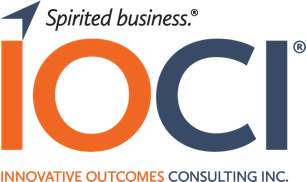
Q/A with Karen Bridbord
Relationship problems might seem like the sole territory of marriage and family therapists – experts trained in helping people work through conflict, learn how to communicate and solve trust issues. Until now.

Karen Bridbord, Ph.D., a licensed psychologist and executive coach in the New York metropolitan area, assures that relationship issues also come up in the workplace and not only affect productivity, but can stall those hoping to advance their careers.
Bridbord, who’s part of the IOCI coaching team, works with systems – couples, families and, yes, companies, who are seeking help with issues connected to relationships.
Trained by John Gottman, a psychology professor known for his work on marital stability and relationship analysis through scientific direct observations, Bridbord has taken his ideas and models and applied them to the workplace.
Much as Gottman’s work aims to improve relationship functioning and the avoidance of those behaviors that harm human relationships, Bridbord’s work seeks to address workplace relationship building, particularly when it stands in the way of career advancement.
We sat down with Bridbord to learn about her modification of Gottman’s ideas and to find out what role relationships play in workplace success.
Why should we care about relationships in the workplace?
Because bad relationships have costs to businesses. Relationships effect things like productivity and retention. Research shows that people tend to stay in a job when they have a best friend at work. Of course, there are boundaries to workplace relationships, but when you have positive workplace relationships you have someone you can use for support, someone who has your back and who you can check in with, and that reverberates into the white spaces of organizations and affects how it feels to work there.
“People will leave well-paid jobs when they don’t feel connected. When we feel part of something due to relationships with the people we work with, it’s very tribal,” says Bridbord.

How have you applied Gottmann’s work on relationships to the workplace?
That’s why I created a new model based on Gottman’s ideas. What he called the Sound Relationship House Theory, I changed to the Sound Relationship Workplace, renaming the levels and applying them to the work world.
When companies or individuals come to me for coaching, it’s not an issue of doing the work itself, it’s because there are underlying conflicts in how people are getting along. These people are usually technically very good at what they do, but an underlying personal dynamic is getting in the way of productivity of individuals or a team. This can be as simple as a leader or manager struggling with interacting with their team and team members being afraid or not feeling supported.
I use the Sound Relationship Workplace hierarchy to help them shift their behavior so they can learn to manage more successfully.
How is John Gottman’s work relevant in the workplace?
Healthy relationships are at the core of success in any workplace. Imagine a corporation where no one communicates or gets along. It takes a team to “make it rain,” as they say.
You have to get people working together. And there are all sorts of dynamics around that, particularly around conflict in the workplace. News flash – conflict can be good if it’s managed effectively.
Gottman gave us “The Four Horseman of the Apocalypse,” the specific kinds of negativity that, if allowed to run rampant, are lethal to relationships. Here, I define them as they apply to workplace relationships.
Criticism
You have an issue with what a person has done and you make it about the person themselves. Say they were asked to write a report and they did a poor job. You respond by telling them it’s junk. The person feels brought down as a human, rather than being criticized for a poor piece of work.
The antidote: Don’t make it about the person, make it about the work. In good conflict, people don’t feel personally criticized.
Stonewalling
When this behavior rears its head, it’s usually because you’re so overwhelmed by interaction with a person or their work that you don’t know where to begin, so you shut down or you freeze the person out.
The antidote: Self-soothing behavior, not taking it personally, calming yourself down.
In this case, the leader needs to recognize that it’s their job to show up for the other person and to create a positive environment where people can grow in their craft.
Defensiveness
This goes along with criticism and shuts down the lines of communication. The person is criticized and begins to feel incompetent. Excuses are made – I wasn’t given enough information – and the person begins to defend their below-par work.
The antidote: Taking responsibility for a kernel of truth, admitting that the work was poor. This keeps the conversation open and allows for the work to be elevated.
Contempt
Contempt is criticism on speed. It’s feeling that you’re better than others. And it’s often non-verbal, but employees identify it by feeling shunned, ignored, not informed.
The antidote: Recognition and positive feedback that’s specific. Research shows positive feedback leads to better morale, improved productivity and the absence of demoralizing behavior. It’s empowering and motivating to feel recognized!
Are there specific situations where the Gottman method can be applied to the work setting versus others?
When it comes to the problems executive coaches solve best, it always somehow leads back to relationships. Whether it’s goal-setting, performance appraisals or productivity, you have to have relationships with people.
When a leader is doing what they say they’re going to do, when they’re showing up and everyone knows what direction they’re going in, all of that builds trust and leads to productivity. It’s like a symphony. When I trained with Gottman, I didn’t know I would use it in the workplace, but I developed the model because it has so much relevance.
Is relationship conflict avoidable in the workplace?
I don’t know that you want it to be. Conflict is good when there’s a level of safety, it needs to feel safe to some degree. And it’s not about the individual people, but what you’re working toward.
For example, playing devil’s advocate is a form of conflict, but it’s a way of getting at the blind spots. So in some cases, conflict can lead to innovation, collaboration and higher levels of productivity.
Now there are of course people with whom the act of disagreeing with them is an act of aggression, and that’s problematic and doesn’t lead to growth. But we all have blind spots and we do have to create a boundary about how we engage – and that’s where the Four Horsemen come in – but people need to learn how to have productive conflict, and that’s where coaching comes in.
CASE STUDY
Failure to trust
 Putting a point on why relationships matter in the workplace, Bridbord points to the case of a client who wanted to move up in his organization but just couldn’t get there.
Putting a point on why relationships matter in the workplace, Bridbord points to the case of a client who wanted to move up in his organization but just couldn’t get there.
It turns out his colleagues didn’t trust him. Why?
He took a hard line on the idea that his work life and his personal life had to be separate. He didn’t reveal much to colleagues, thinking that being uber professional meant not sharing anything personal.
Before long, he had earned a nickname – CIA agent.
His goal of being promoted to a senior position was thwarted because people didn’t feel comfortable around this person. The stringent boundary he had created meant others were unable to connect.
To meet his goal of earning a promotion, Bridbord worked with the employee to help him open up more. The idea was to diffuse the boundary he had created so people could see that he was human.
Together, they crafted messages and developed strategies so he could comfortably share parts of who he was.
And Bridbord explained that building relationships at work is done in the service of building trust and collegiality. That seemingly unproductive banter before meetings helps people feel connected – How was your weekend? What’s something outside of work that you’re excited about? And when they’re connected, work flows better, projects get done more seamlessly and people have improved communication.
And the outcome?
Change isn’t easy and a full mindset shift from “CIA agent” to personal sharing took some time. However, once he started to lower his defenses and share about himself, he had several “a-ha moments.” He started to enjoy work more and his connections with people resulted in him feeling more invested in the company. He also realized that through forging friendly, collegial interactions with colleagues, people seemed to want to work with him more – and they produced better outputs because they wanted to do well for him.
Relationship-building is just one issue that can be addressed with executive coaching. IOCI can also help with issues like procrastination, habit formation and leading through adversity. Contact IOCI to learn more.
Marialane Schultz is the founder of IOCI. She helps individuals and organizations perform at their best, do meaningful work and be impactful through customized coaching and consulting engagements.

